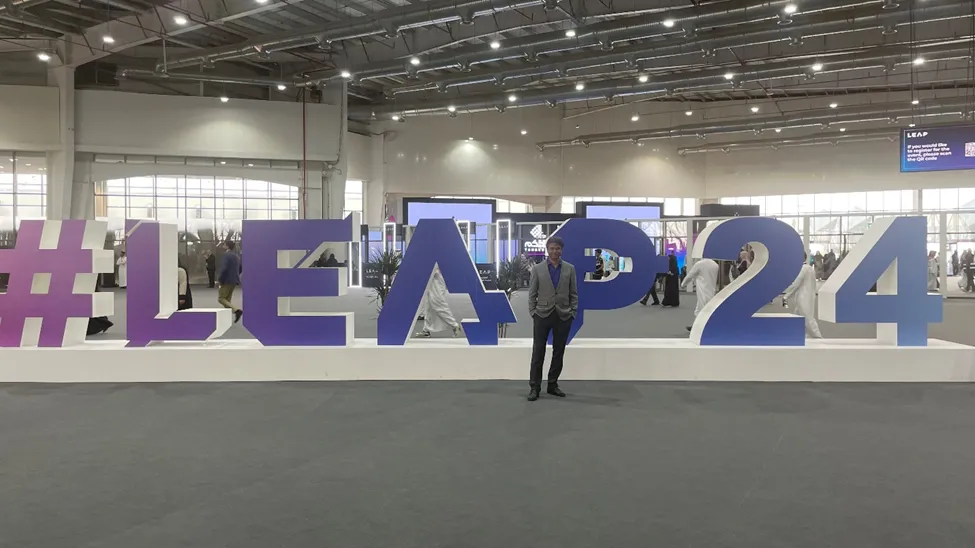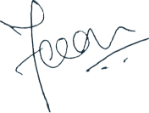A Giant LEAP by Saudi Arabia

A New York Times article on Saudi Arabia says, “If you went to Saudi Arabia five years ago, you did not go to Saudi Arabia”. For someone who went to Riyadh for the first time (in June 2023), and knew nothing about its past except for what western media informed me, I wanted to understand firsthand the transformational journey of a country that was work in progress — but at lightning speed.
How can a conservative and relatively closed-in Islamic country move towards modernization and open up in such a short time? How can a country where veiled women who were not allowed to drive, now become Uber drivers? How can restaurants which had separate sections for men and for ‘family’ now host everyone in the same room? How can a bureaucratic country steeped in corruption attract the best professionals from the private sector? How does a country with 70% of its people under 30 handle an older population that has lost its power? How does a rich country that is almost 100% dependent on oil expand to other sectors? How does a young prince become the most powerful and the most controversial leader of the world at the same time?
No amount of reading literature (Blood and Oil; MBS: The Rise to Power of Mohammad Bin Salman) or watching documentaries (Inside Saudi Arabia; The Crown Prince of Saudi Arabia; The Line: Saudi Arabia’s City of the Future in NEOM) can compare with spending time firsthand in the country. I have been there twice, within 12 months, attended the largest Tech Event — LEAP (positioned as “A Digital Davos”); did some sightseeing at “Diriyah” and “Edge of the World”; taught two cohorts of 125 engineers, and met some incredible people. Here are my observations and insights (these are personal, and I don’t claim to be an expert).
1. A Powerful Vision 2030: You can’t fault the prince for the sheer audacity of his Saudi Vision 2030. You also cannot escape the presence of the young Crown Prince Mohammad Bin Salman (MBS) everywhere — from portraits hanging in hotel lobbies, restaurants, and other public spaces, it’s clear who’s the boss! MBS has leveraged his influence to restructure the kingdom’s economy, loosen its strict Islamic social codes, and confront its enemies around the region, especially Iran. That vision won him fans at home and on Wall Street, in Silicon Valley, in Hollywood, and at the White House, where President Trump embraced the prince as a key player in his own vision for the Middle East. But over time, the sheen of the visionary young reformer has become tarnished, leaving many struggling to determine whether MBS is in fact a rising dictator whose inexperience and rash decisions are destabilizing the world’s most volatile region. Time will tell!
2. Power of Youth and the Role of Women: In an interview on “60 Minutes”, MBS said, “I am because of my people. My job is to serve the people.” It was heartening to see how women have been integrated into the workforce. When I arrived in Riyadh, almost all the border agents processing travelers were women. They are now in pretty much every job including in the military (aiming for 31.40% of women in the workforce by 2025, the goal was surpassed early, reaching 35.6% by the second quarter of 2022). And this happened almost overnight, and why many people here do support him despite his autocratic style. Also, I have personally seen the investment in young engineers that the government has committed to making. It is clear that educating the youth and including women in the transformation is the only way forward.
3. The government at the core of the change: The crown prince invited the smartest people from the private sector to work for the public sector (government). Interestingly, the public sector is where all the action is and in the ministries I met some of the best and brightest. On the ground, the people are simply not able to keep up with the speed of change. One Saudi told me he felt numb at this point because it’s just a deluge of constant change, from laws to massive construction projects to entertainment events. Saudis will tell you that they trust the government and know MBS will figure out the right thing to do. However, there is a general sense of uncertainty over the country’s identity and where it is headed. No one knows, as one Saudi put it to me.
4. Being bold and audacious: Saudi Arabia wants to make Riyadh Air the best airline in the world (aiming to triple annual travelers to 330 million by 2030), host the FIFA World Cup in 2034, and make NEOM the land of the future! Saudi Arabia has a $500 billion budget to build the smart city NEOM, which will host many futuristic sporting events including the 2029 Winter Olympics — yep — skiing, snowboarding, and tubing in a country that is 95% desert! And NEOM is now also partnering with the IPL team Rajasthan Royals.
When I attended LEAP at Riyadh in March 2024, the sheer scale stunned me. With over 215,000 participants and 1000+ speakers in only its second edition, it was clear that being the biggest is a singular dream (though there are many elements that still need to improve).
5. Changing the Image: Saudi Arabia has spent at least $6.3bn (£4.9bn) in sports deals since early 2021, more than quadruple the previous amount spent over a six-year period, in what critics have labelled an effort to distract from its human rights record, calling it “sportswashing”. Saudi Arabia has slowly taken over the world of sport — football, golf, boxing and tennis — hiring icons like Ronaldo, buying English Premier League team Newcastle United, and making Rafael Nadal their tennis ambassador. We’re all familiar with LIV Golf and Saudi Arabia’s influence.
6. Focus is the key: MBS clearly outlined the country’s priority — Environment Sustainability, Healthcare, Energy and Technology. The need for clinical focus is communicated transparently to the people. Every project is tracked on a unified dashboard across every department.
7. Investment through PIF: Known as the Public Investment Fund (PIF), the investment pool manages $700 Billion in Saudi investment. According to the Vision 2030, PIF seeks to amass $2 trillion in assets by 2030. They have ownership in Disney, Boeing, Uber, Citigroup, Meta and many more.
8. A diverse population with 40% expats: Saudi Arabia provides a unique experience for expats who form a close-knit community. Many of them move because it’s cheaper to live there than in nearby countries. If you’re a foreigner you can expect a good quality of life, great work benefits — and no taxes! Compounds or gated communities provide security and have amenities like swimming pools and tennis courts. The official language is Arabic but English is widely spoken.
9. The next tourist destination: For decades, nearly all tourists in Saudi Arabia were pilgrims going to Mecca, the birthplace of Islam. Now, Saudis use tourism to redefine the narrative and showcase their hospitality, generosity, spiced coffee and deep-fried sweets. I was taken to the “Edge of the World” by a local driver who refused to take money from me — in fact he paid for our lunch! Saudis even get offended if you offer to pay!
10. Smoke a shisha and discover the local culture: Shisha is the traditional Arab water pipe (known elsewhere as a hookah). It’s fun to pass an evening in congenial company in a Shisha café while enjoying a shisha of your preferred flavor (apple, grape etc.) and watching football! When it comes to shopping, every mall is filled with American brands, but local perfumes and dates are worth buying!
People’s sense of pride is palpable. Saudis were often seen as rich, spoilt, and entitled. That is slowly changing. Most people could not have imagined that the change they’ve witnessed over the last seven years would happen in their lifetime. (However, I am aware that my view is entirely from being in one city — Riyadh — and traveling to other regions will provide a different picture.)
A spirit of generosity, a strong spiritual core, and an ambitious, unreasonable leader may well see a new superpower emerge by 2030! I asked my friend what happens after 2030 and he responded, “We will work towards 2040, but for now, I have only seven years to realize our crown prince’s vision, and we don’t have much time to lose.”

